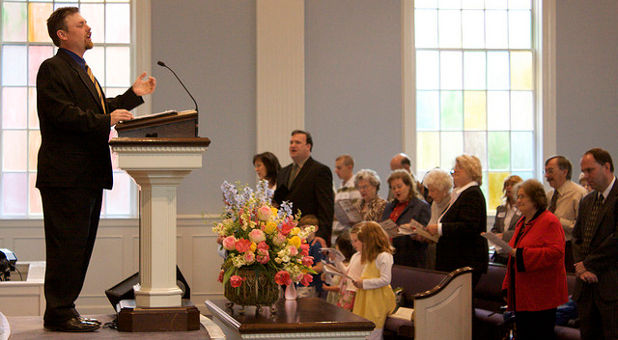Religion is a hot topic in the news, with the pope’s recent visit to Brazil and unrest in the Middle East leading to increased killings of Coptic Christians in Egypt and Catholics in Syria. It is also a hot topic in academia.
In one recent week, 16 articles were posted on the Social Science Research Network, and more than 50 were posted in the weeks before it. Gallup research recently showed that those who worship weekly are much less likely to smoke than those who never worship. Study after study shows this positive impact of religious worship on nearly every outcome measured. Though there are myriad reasons to tout the benefits of religion, two stand out.
First, the proposition that weekly worship of God is indisputably good for individuals—and by extension, good for society—is beyond question. On virtually every outcome measured in U.S. surveys, those who worship weekly score highest as a group on all positive measures and score lowest on all the negative measures, almost without fail.
From such a robust pattern, it seems like a common-sense deduction that weekly religious worship is a common good and one to be strived for. Going further, one could conclude that society does not work as well as it might if it does not worship God on a weekly basis. This sounds almost biblical, but that is what the data shows at the macro level.
The second reason is that as demographic surveys show, there is a drift away from religious worship. That means society is passing up significant societal benefits—benefits most citizens take for granted that they will naturally continue to have but which will erode further if they continue to worship less and less.
This is all testable. As the coming decades unfold, the drift away from or back to worship of God will reveal measurable effects across all dimensions of concern in our public discourse. The past can be studied more thoroughly as well—researchers can probe data from federal surveys and the like to determine the significance of worship on individual well-being. For example, research on the benefits of religious practice on educational performance illustrates benefits that leave the effects of increased government spending in the dust by comparison.
Religious worship tied to another aspect of a healthy society—intact marriage—yields children who grow up to be much more functional than their nonreligious counterparts. Those children who grow up in intact families that also worship God weekly comprise the high-functioning core of our country, while at the opposite pole, those children from non-intact, never-worshipping families are the lowest-functioning group.
It bears emphasizing that this pattern holds for the groups involved, not for all the individuals who make up each group. There is naturally a wide variation between specific individuals.
On the whole, however, as marriage declines, the worship of God tends to decline as well, as Mary Eberstadt has cogently illustrated in her book How the West Really Lost God. This demographic drift ought to be of major national concern because with both marriage and worship declining, American children are losing the human-capital capacities that are needed to sustain a Republican constitutional government.
The Founders were quite aware of the connection between religion and the virtues needed in a republic and expounded on it repeatedly. Benjamin Franklin, though among the Founders least likely to worship God regularly, was still the leader of prayer at a moment of crisis during the Constitutional Convention. His inimitable quip that the Founders had given us “a republic, if [we] can keep it” may eventually apply to an unhappy loss of piety that leads to a loss of Republican sentiments and virtues.
Auguste Comte, the father of sociology, would be amazed that his science, developed to replace religion, now points very definitely to society’s need to worship God weekly if it wishes its citizens to reach their potential and society to function smoothly.
Pat Fagan is director of the Marriage and Religion Research Institute (MARRI) at Family Research Council. This article appeared in The Washington Times on Monday.
See an error in this article?
To contact us or to submit an article






















